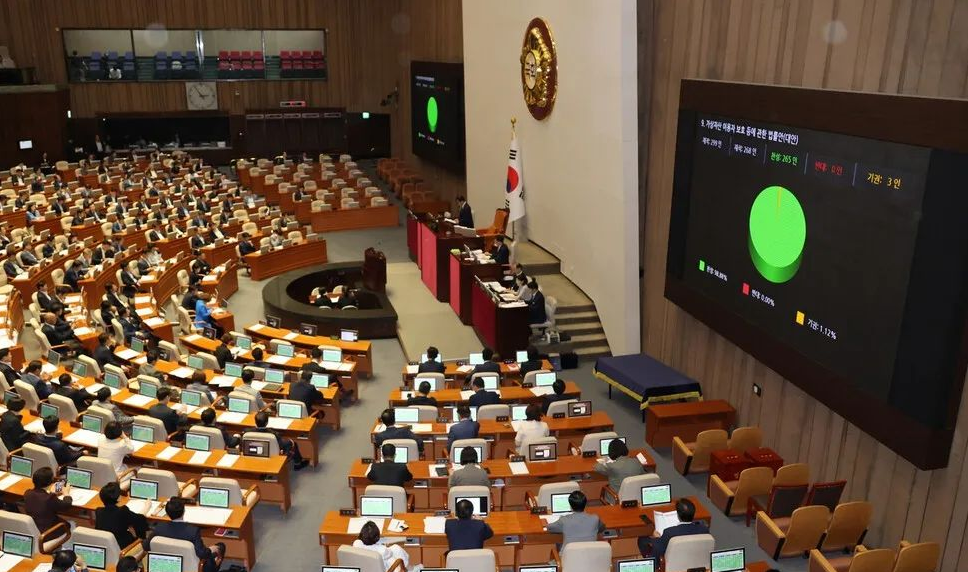Monetary Authority of Singapore: We use distributed ledger technology to solve real-world problems, not technology
Source: 21st Century Business Herald
Gu Yue reports from Beijing
Editor's note: The original title was "Director of the Monetary Authority of Singapore: Discussions with the People's Bank of China on Digital Currency, etc."
Regulatory sandbox, Project Ubin, APIX platform, artificial intelligence regulatory principles … Singapore has frequently acted to promote the development and supervision of fintech, and it has always attracted global attention.
- BTC prices are picking up, miners are out of stock, but the mine is empty …
- Is Bitcoin price increase affected by coronavirus?
- Donations are in doubt, and the charity fund blockchain is imminent | Witness
In a recent interview with 21st Century Business Herald, Ravi Menon, the director of the Monetary Authority of Singapore, described the dynamics of Singapore's fintech regulation and commented on cutting-edge issues.
Regarding the Ubin project entering the fifth stage, Meng Wenneng said that the problem that the Ubin project is to solve is not limited to cross-border payment. Value-added services, so we are also inviting more financial and non-financial institutions to participate in the Ubin project. "
Regarding the Sandbox Express launched by the Monetary Authority of Singapore in August 2019, Meng Wenneng said, "Sandbox Express is only applicable to a few innovative activities, and they can start experiments under the same standards. This is mainly an exam (application to join (Sandbox) speed. Currently, the Sandbox Express only accommodates 3 innovation activities. In the future, we have accumulated more experience and will incorporate more. "
For the application of artificial intelligence in the financial field, Meng Wenneng believes that public trust, interpretability of results, and social acceptance are the three main points that practitioners and regulators need to pay attention to.
Ubin project is not limited to cross-border payments
"We use distributed ledger technology to solve real-world problems, rather than technology for science and technology." Meng Wenneng told a 21st Century Business Herald reporter that one of the issues to be resolved is cross-border payments. "Currently, Gap fast payment is already very easy. 15-20 countries in the world can do it. Singapore and China are two good examples. "
But when it comes to cross-border payments, it is much more difficult. For example, Meng Wenneng said, "If I want to send money to your account in China, I need to go through a long process that takes several days to complete the settlement; and there are bank charges and exchange losses. This requires a lot of cross-border remittances in Asia. Returning labor and small and medium-sized enterprises with small payment needs are huge burdens. "
The much-watched Ubin project is exactly trying to "make cross-border remittances the same as domestic remittances (convenient, efficient, and low-cost)."
In 2016, the Monetary Authority of Singapore launched the Ubin project. Its overall plan is a six-stage exploration, which is SGD Singapore's legal currency digitization, domestic interbank settlement, distributed ledger-based DvP, cross-border interbank payment settlement, and target operating model. And DvP for cross-border payment settlement. Currently, the Ubin project has completed the first four stages.
On November 11, 2019, the Singapore Monetary Authority announced at the Fintech Festival that the Ubin project officially started the fifth phase, namely the exploration of the target operating model.
, Try to determine the commercial feasibility and value of a blockchain-based payment network. At present, more than 40 financial and non-financial institutions have cooperated with the project.
"Domestic payments are fast and convenient because the central bank can complete the clearing and settlement between bank accounts. When making cross-border payments, there is no central bank; then distributed ledger technology is very useful because it does not A central bank is required, and payment transactions can be verified and confirmed faster and cheaper. "Meng Wenneng explained that Singapore initially cooperated with the Bank of Canada and" Canada and Singapore have both issued digital currencies on the blockchain for cross-border transactions. And guarantee the certainty of payment ", meanwhile, the privacy of account holders on the platform is also guaranteed," the transactions between the two banks will not be known to other banks. "
It is worth mentioning that the problem to be solved by the Ubin project is not limited to cross-border payments. "We are looking for more value-added services, not just payment, but also value-added services such as insurance, trade financing, and supply chain management, so we also We are inviting more financial institutions and non-financial institutions to participate in the Ubin project. "
"As a huge economy, China is now more focused on solving internal problems and looking for solutions to make the entire system more efficient. But over time, China will need to conduct more cross-border business, which is exactly what we I hope there will be a better connection in the future. "Meng Wenneng added that although the People's Bank of China did not participate in the Ubin project," we maintain close contact and have advantages and in-depth research in blockchain, central bank digital currencies and other China. On the topic. "
APIX has been included in 140 institutions
Another project that has received much attention is the API Exchange (APIX) platform launched by the Monetary Authority of Singapore in November 2018. The goal of the platform is to be a global, cross-border, open platform. Its mission is to match financial institutions and fintech innovation companies in the Asia-Pacific region, promote cross-border cooperation, and provide them with common standards and shared APIs to support emerging markets. Financial services innovation and inclusiveness.
"As of now, 100 Fintech companies and 40 financial institutions have registered on the APIX platform. Recently, they set up a strategic advisory committee composed of industry leaders to guide the development of APIX." Meng Wenneng reported on the 21st Century Business Herald The reporter said that as regulators, "we can build platforms, but we don't know what the real world needs are, so let the industry committee decide which solutions the industry needs, and then determine which capabilities the APIX platform needs to embed. This will help the platform With rapid expansion, APIX is actually a global platform. "
Meng Wenneng said that APIX ’s next major task is to “involve more Fintech companies and financial institutions” and “to develop more capabilities to provide solutions and continue to improve the platform”.
"Participants on the platform will be more interested in joining the Strategic Advisory Committee. Currently, New York Mellon Bank, Amazon Web Services, Singapore Fintech Association, Brankas, MasterCard, AMTD International from China, etc. Participants are an international Group, and very influential, "he said.
Sandbox Express is only available for a few innovative activities
Fintech is thriving in Singapore, thanks to the country's more tolerant regulatory environment and advancing regulatory technology. Among them, the development process of Singapore's Regulatory Sandbox is the focus of much attention.
The so-called regulatory sandbox refers to the regulatory authorities simplifying the fintech market access standards and thresholds within a limited scope of business, and allowing institutions to quickly implement various fintech innovation businesses while ensuring investors' rights and interests. Business operation status, decide whether to promote. In November 2016, Singapore launched the regulatory sandbox, becoming the country that launched the regulatory sandbox after the Bank of England.
In terms of the mode of operation, the MAS will discuss with the applicant the boundaries of the sandbox and may relax the standards as appropriate in terms of the organization's capital, liquidity, and past history. It is reported that the Monetary Authority of Singapore has provided guidance to more than 250 companies entering the "sandbox".
"Many of us have many policies. After a while, we don't know what these policies are useful for. There is a solution. You take out your phone, scan your policy, and then send it to a fintech. Company. ”Meng Wenneng took PolicyPal, the first digital insurance mobile platform that“ graduated ”from the regulatory sandbox, as an example to explain how the“ sandbox ”works.“ This company reads all keywords through OCR recognition technology, and Apply basic artificial intelligence for correlation and evaluation. "
However, this is a new technology that has never been tested. Therefore, the Singapore Monetary Authority issued a license for PolicyPal to provide services in the sandbox for a predetermined number of users and make full disclosure. The trial lasted 6 months, and after demonstrating that the technology worked and was safe, PolicyPal "graduated" from the sandbox, obtained a license, and met all regulatory requirements.
In August 2019, the MAS further launched the Sandbox Express project to further reduce test time.
"The sandbox express is to make some projects do not need to do too much customization." Meng Wenneng explained that the previous regulatory sandbox required a lot of customization. "You need to understand the technology behind and set up an application to enter the regulatory sandbox. "The rule of the player," which usually takes several weeks or even longer, "so we have a sandbox express, put forward some conditions, if you can meet the conditions, you can go directly into the sandbox and start the experiment within three weeks. "
"Sandbox Express is only applicable to a few innovation activities, and they can start experiments under the same standards. This is mainly to consider the speed (of those who apply to join the sandbox)." Meng Wenneng said, "At present, the Sandbox Express only accommodates 3 innovation activities. In the future, we have accumulated more experience and will incorporate more. "
Key points of AI regulation: public trust, interpretable results, social acceptance
With the increasing application of artificial intelligence in the financial field, its regulation has increasingly become a global challenge.
In November 2018, the Monetary Authority of Singapore issued a set of principles to promote fairness, ethics, accountability and transparency in the use of artificial intelligence and data analysis in the financial sector (Fairness, Ethics, Accountability and Transparency, FEAT Principles). These principles have been developed in close collaboration with senior industry partners and take into account the views and feedback from financial institutions, industry associations, fintech companies, technology vendors and academia.
In Meng Wenneng's opinion, the public's trust in artificial intelligence (Public Trust in AI), the explainability of results (Explainability of Results), and social acceptance (Social Acceptability) are three important points that need attention.
"The public must be able to trust artificial intelligence." Meng Wenneng said that to establish this trust, the first priority is the protection of personal data privacy. "Singapore has established personal information protection rules very similar to the European GDPR. If we know that personal data will be Most people do n’t feel comfortable using it without our permission. "
Second is interpretability. Meng Wenneng believes that after artificial intelligence produces a result, it must be able to explain how to obtain it. This cannot be a "black box". Therefore, boards, management, and business leaders must understand the models behind artificial intelligence, and data analysts need to be able to explain the algorithms behind them. "Why is this loan rejected? Why is this insurance set? They need to be able to explain it."
We will continue to update Blocking; if you have any questions or suggestions, please contact us!
Was this article helpful?
93 out of 132 found this helpful
Related articles
- On-chain transaction linkage market rose by 46%. The number of large transfers or the leading indicator?
- Cryptocurrency-related issues are included for the first time in U.S. tax forms, IRS: Cryptocurrencies remain the focus of 2020
- Watch | Brexit wishes come true, can BTC skyrocket?
- Zhu Jiaming: Rethinking about industrial blockchain: Although the blockchain industry has made progress, it is expected to be much slower
- Global central bank digital currencies accelerate, DCEP development process inventory
- Blockchain expansion, DeFi, Bitcoin halving … Pantera drew these priorities for 2020
- Starting | Deng Jianpeng: The Rule of Law Approach to Blockchain Supervision






